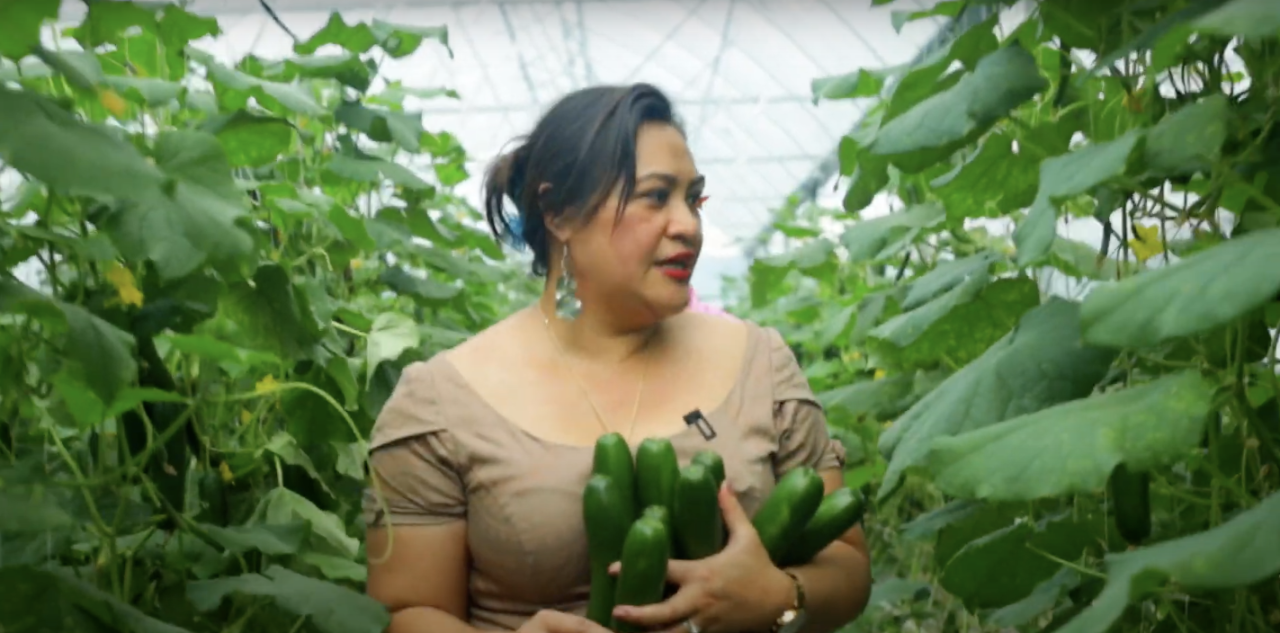Inside ANZ
Focus on fresh
“There are always challenges that pop up and people say, ‘you can't do this’ or ‘you can't grow this.’ Our team is always trying to find a solution to make it work,” Pitovaomanaia Mayday Cai, Director, Frankie Company.

Pitovaomanaia Mayday Cai director of Frankie Company farm, Samoa.
More than 20 years ago, Frankie Company Ltd was established in Samoa as a retail and wholesale trade business. Today, with 13 supermarkets across the country employing around 800 staff, Frankie Company has ventured into farming.
Time for change
Three years ago, Frankie took its Tanumalala-based supermarket business into agriculture and farming; one of the biggest transformations the company had ever made.
This not only led to significant expansion but proved particularly valuable for the company throughout COVID19, when global supply chains were impacted.
As one of the largest supermarket chains in Samoa, Frankie faced many import-related challenges, particularly product consistency.
Director of Frankie Company, Pitovaomanaia Mayday Cai, says there were times the company had to try and order bulk essentials like sugar and rice to ensure they didn’t run out of supply for their customers.
As a result, Pitovaomanaia says, “We changed the focus of import substitutions, especially vegetables and eggs.”
“We drew our focus into farming.”

Frankie Company farm at Tanumalala.
According to the Food Security and Food Consumption in Samoa report published in 2020, most Samoans grow food crops for home consumption and cash crops such as coconut oil, coconut cream, taro, cocoa and banana, for export.
However most food products consumed are imported, and Samoa is a net importer with a negative trade balance that has increased from USD 30 million in 1995 to USD 355 million in 2019.
Meat products (poultry, sheep and goat meat, and dairy products), cereal products (rice and wheat flour), baked goods, frozen and processed fish, and raw sugar represent almost 16 percent of the total value of imports.
Growing together
ANZ has been supporting Frankie Company through a period of significant change and expansion.
Pitovaomanaia says “When we started to explore our options and submit our proposals, I think the bank could see the potential in what we could achieve. That made it easier for us.”
It wasn’t just about lending; ANZ’s advice really helped foster a strong relationship.
“Sometimes, we have so many ideas and visions. Something that's different to other banks is ANZ offer us that advisory support to help guide us,” says Pitovaomanaia.
“It's good to see this partnership. As long as [ANZ] knows that we've got everything they need, it makes it so much easier for us to grow in different businesses we move into. It's not just lending, but [ANZ] also cares about their customers and grows with them,” she adds.
ANZ Samoa Country Head, Bernie Poort says his team understands what it means to be a relationship bank.
“For us it’s about ongoing communication, sharing insights and links from our home markets and providing connections,” says Poort.
“Often in Samoa, the difficult part is just finding the expertise from around the world to show us how to do new things, like looking to innovation to grow fruit and vegetables locally.
“The Frankie model is to continue to find ways to reduce reliance on imports, which is great for the country because it not only creates jobs but delivers cheaper products to consumers,” says Poort.
Top quality and affordable produce
After seeing that using hydroponics to grow produce could achieve better results, Frankie decided to use this method to ensure they could grow a range of top quality produce year-round.
The decision has paid off, leading to an impressive expansion while giving customers access to more affordable vegetables.
“These vegetables we grow – for example tomatoes, cucumbers, capsicums - they can actually see the improvement in quality, but also, most importantly, the price,” says Pitovaomanaia.
“We used to import from New Zealand every week and the cost of tomatoes to the customer at the supermarket was about $25 - that is really high.”

Produce is grown organically at Frankie Company farm.
Pitovaomanaia says no sprays or chemical substances are used when growing their produce, it's organically grown using plant food, leading to tasty, nutritious, and safe products.
Pitovaomanaia is proud of the team behind Frankie Company, saying they have adapted well and are always very supportive and proactive, no matter how hard things get.
“There are always challenges that pop up and people say, ‘you can't do this’ or ‘you can't grow this.’”
“Our team are always trying to find a solution to make it work.”
Bob Turnbull, ANZ Head of Commercial, Samoa
Related Articles:
Customers
From Rarotonga to the world
Customers
